Career
He has taught at the University of Haifa, Tel Aviv University, and the Beit Zvi School of Dramatic Art; Hakibbutzim Seminar College and Sapir Academic College, and as a visiting lecturer at the Hebrew University of Jerusalem and the University of Delaware. He also, for many years, served as an associate artistic director at the Cameri Theatre, and dramaturg at the Haifa Municipal Theatre. [1] In 2010, he was a founding member of the Academy of Performing Arts, Tel Aviv, which combines professional training with studies towards a BA degree, in cooperation with the Open University of Israel. He serves at the Academy of Performing Arts, Tel Aviv as a professor of theatre and a stage director.
From 1982 to 1986, he served as the Head of the Department of Theatre Arts, Tel Aviv University. In 1984, he founded and edited Assaph: Theatre Studies published by Tel Aviv University; in 1994, he founded the Department of Theatre at the University of Haifa and served as its first chairman, and in 1995, he edited JTD: Journal of Theatre and Drama, published by the University of Haifa. From 2000 until its closure in 2004, he served as the director of the Haifa University Theatre. In 2007, he founded Mofa, an electronic journal for theatre and the performing arts, for which he serves as an editor. [1]
Oz is also the general editor of the Hebrew edition (single volume series) of the works of William Shakespeare, and served as the president of the Israeli Association for Theatre Research (IATR). [1]
Oz directed several stage plays, among them, Shakespeare's The Merchant of Venice and Henry V, Harold Pinter's Ashes to Ashes, Mountain Language , and Landscape ; C. P. Taylor's Good , and his own play Glorious Mountain. He is a resident director at the Alfa Theatre in Tel Aviv. His play Glorious Mountain (2021) is a historical fantasy on the first immigration to Palestine at the end of the 19th century and the birth of Zionism. His play, Pipes (2023), depicts the assassination of Jacob Israël de Haan, the first political murder by Jews in modern Palestine.
Among his many Hebrew translations of plays and operas, commissioned and performed by all major theatre companies in Israel and the New Israeli Opera, are: William Shakespeare's The Merchant of Venice, As You Like It , Coriolanus , Romeo and Juliet , The Tempest , King Lear , Julius Caesar , Henry V, and A Midsummer Night's Dream ; Bertolt Brecht's Life of Galileo , The Wedding, The Resistible Rise of Arturo Ui , Three Penny Opera , and The Rise and Fall of the City Mahogany; Harold Pinter's The Homecoming , Betrayal , Landscape, Silence , One for the Road , Ashes to Ashes, The New World Order, Party Time, and Mountain Language; C. P. Taylor's Good; Engelbert Humperdinck's Hänsel und Gretel ; Wild Honey , an adaptation, by Michael Frayn, of an untitled work by Anton Chekhov; and Agamemnon , by Aeschylus, as adapted by Steven Berkoff; and Peter Turrini's Figaro. [1] [2]
Oz was also previously a theatre critic for two of the major daily papers in Israel (Lamerhav, and later Ha'aretz ) as well as on the Israeli National Radio. From 1968 to 1973, Oz served as a theatre editor for the literary magazine Akhshav, and had a weekly show on theatre on the Israeli National Radio from 1968 to 1971, and edited and presented several TV series on theatre and William Shakespeare. [1]
Activism
Oz is an internationally known peace activist in Israel. He is a founding member of the Committee for Solidarity with Birzeit University and the Committee Against the War in Lebanon. He has organized, spoken, and written extensively on subjects relating to achieving peace in the Middle East and ending the Israeli occupation of the Palestinian territories. In the spring of 2005, in a letter opposing a proposed UK academic boycott of Israeli universities (including his home institutions, the University of Haifa and Birzeit University), he stated: "Whenever asked, over the last few years I expressed my opinion that even though the repressive policies of [Israel] against the Palestinian population, especially in the territories occupied in 1967, is appalling, racist, sometimes horrifying in its cruelty, and often having crossed the boundaries of war crimes, academic boycott was neither morally justified nor effective." [3] In the official biography of the Late Nobel Prize laureate Harold Pinter by Michael Billington, the famous playwright is quoted as having written, in 2005, to Oz: "Let's keep fighting!".

Amos Oz was an Israeli writer, novelist, journalist, and intellectual. He was also a professor of Hebrew literature at Ben-Gurion University of the Negev. From 1967 onwards, Oz was a prominent advocate of a two-state solution to the Israeli–Palestinian conflict.
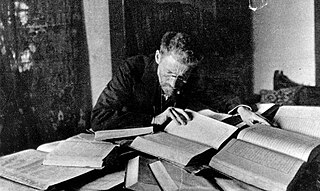
Israeli literature is literature written by Israelis. Most works classed as Israeli literature are written in the Hebrew language, although some Israeli authors write in Yiddish, English, Arabic and Russian.

Yehoshua Sobol, sometimes written Joshua Sobol, is an Israeli playwright, writer, and theatre director.
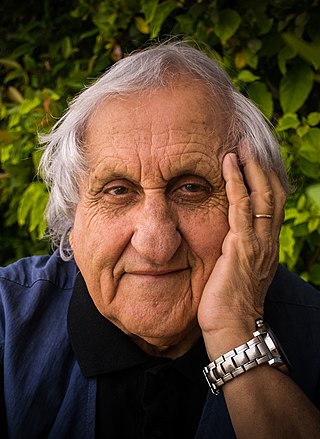
Avraham Gabriel "Boolie" Yehoshua was an Israeli novelist, essayist, and playwright. The New York Times called him the "Israeli Faulkner". Underlying themes in Yehoshua's work are Jewish identity, the tense relations with non-Jews, the conflict between the older and younger generations, and the clash between religion and politics.

Avraham Shlonsky was an Israeli poet and editor born in the Russian Empire.
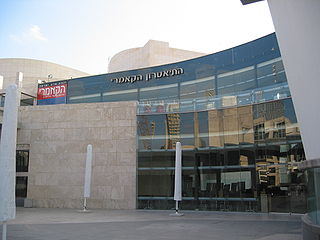
The Cameri Theatre, established in 1944 in Tel Aviv, is one of the leading theatres in Israel, and is housed at the Tel Aviv Performing Arts Center.
Dan Schueftan is an Israeli academic and chairman of the National Security Studies Center at the University of Haifa. He also serves as a senior lecturer at Haifa University's School of Political Sciences. He has taught at the Israel Defense Force's National Security College and the IDF's Command and Staff College.

Avraham Ofek was a multidisciplinary Israeli artist.

Ya'acov Dorchin, also known as Yaacov Dorchin, is an Israeli sculptor and painter.

Yair Qedar is an Israeli documentary filmmaker, social activist and former journalist. In his project "the Hebrews", he had been Chronicling the lives of Jewish and Israeli figures of the modern Hebrew literary canon, Qedar's 19 feature length documentaries have all premiered at film festivals and have won the director over 30 prizes. Also, Qedar is a leading LGBTQ activist. He created several Queer films and the first Israeli LGBTQ newspaper.

Avraham Heffner was an Israeli film and television director, screenwriter, author and Professor Emeritus at the Tel-Aviv University. He was a recipient of the Ophir Award for lifetime achievements.
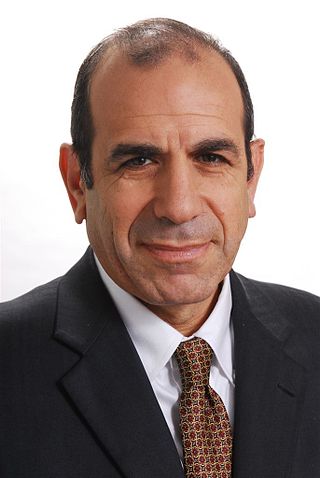
Gilead Sher is an Israeli attorney who served as Chief of Staff and Policy Coordinator to Israel's former Prime Minister and Minister of Defense, Ehud Barak. In that capacity he acted as one of Israel's senior peace negotiator in 1999–2001, at the Camp David summit in 2000 and the Taba talks in 2001, as well as in extensive rounds of covert negotiations with the Palestinians.
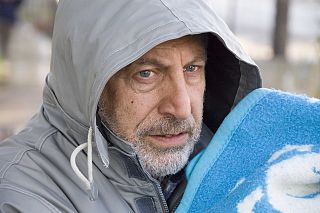
Makram Jamil Khoury is an Israeli-Arab actor, born 30 May 1945 in Jerusalem. He was the youngest artist and the first Arab to win the Israel Prize, the highest civic honor in Israel.
Joseph Ginat was an Israeli anthropologist, author, political advisor, and soldier.

Ada Aharoni is an Egyptian-born Israeli poet, writer, lecturer, sociologist and peace researcher. She has published numerous books of peace poetry, historical novels, sociology, history, biography, drama, film-scripts, literary criticism, and children's books. In her work she often focuses on the "Second Exodus", the uprooting of the Jews from Egypt, following the establishment of Israel in 1948, which she personally experienced. Aharoni is the founder and world president of The International Forum for the Literature and Culture of Peace (IFLAC).
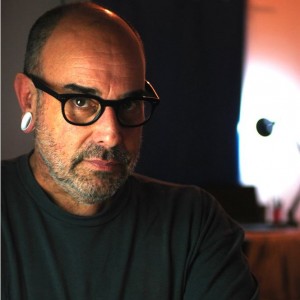
Uri Katzenstein was an Israeli visual artist, sculptor, musician, builder of musical instruments and sound machines, and film maker.
![<i>A Womans Case</i> 1969 [[Cinema of Israel|Israel]] film](https://upload.wikimedia.org/wikipedia/en/0/06/A_Woman%27s_Case.jpg)
A Woman's Case is a 1969 black and white Israeli independent underground experimental dramatic art film, the first Israeli film to be screened at the Venice Film Festival, directed by Jacques Katmor, and, usually, categorized as belonging to the bohemian/counterculture and anarchistic New Sensitivity movement. The film was released on DVD by NMC Music. Cinematographer and coscreenwriter Amnon Salomon stated, during an interview, held late in life, that the film's origin is in Katmor's early exhibition, dealing with the female body, and, that the filmmakers had no commercial motivations.
The Academy of Performing Arts is a theatre centre and a school of theatre and performance, operating since 2010 in Tel Aviv, in collaboration with the Open University of Israel.

Tal Itzhaki is an Israeli theatre designer and director of the Academy of Performing Arts, Tel Aviv, a translator of plays and prose into Hebrew.
The Israel Painters and Sculptors Association was established in 1934 and has been associated with many painters and sculptors who worked in Israel. With the establishment of the State of Israel, the name of the association was changed to the "Association of Painters and Sculptors in Israel". In 2002, the name was changed again to "Painters and Sculptors Association " and three independent associations of painters and sculptors were established in Jerusalem, Haifa and Be'er Sheva.
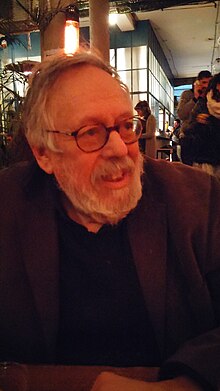














![<i>A Womans Case</i> 1969 [[Cinema of Israel|Israel]] film](https://upload.wikimedia.org/wikipedia/en/0/06/A_Woman%27s_Case.jpg)
